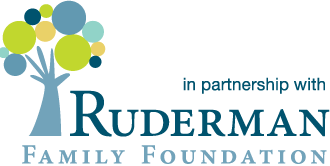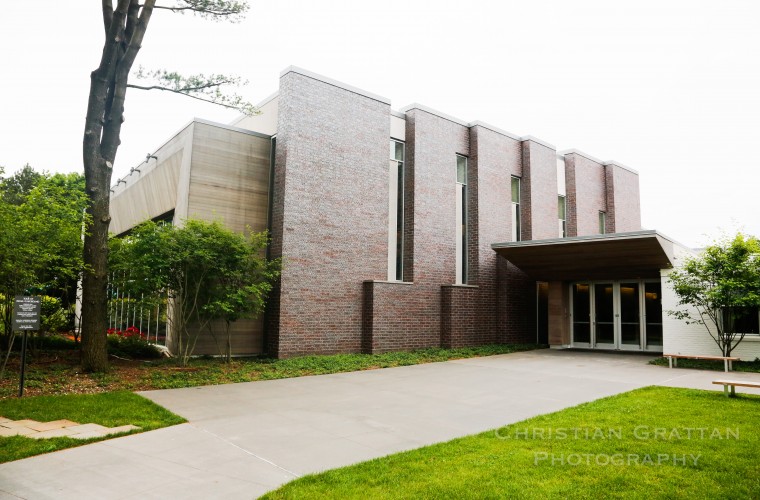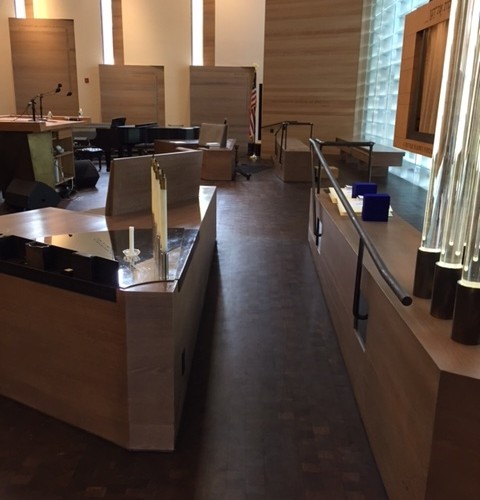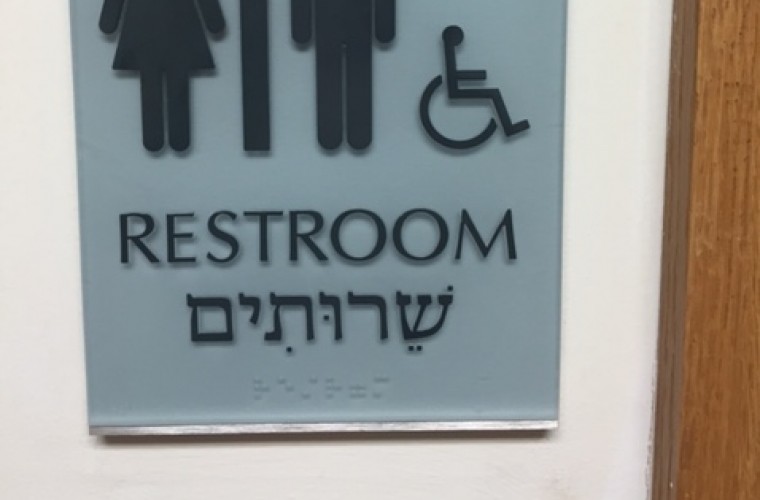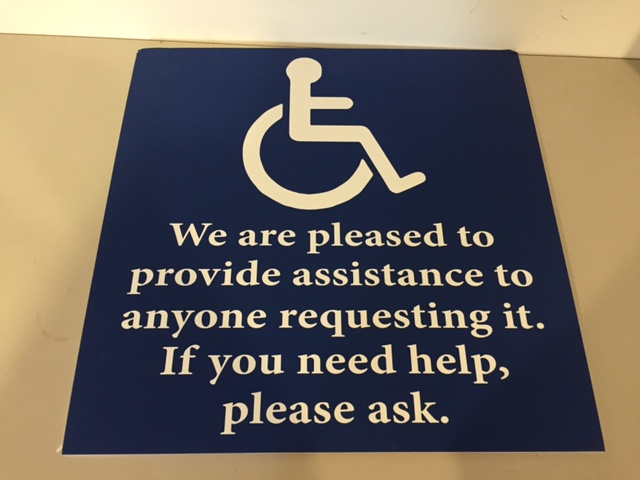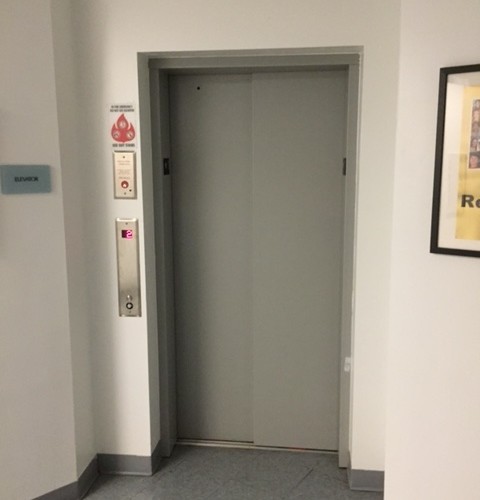Areas of Inclusion: Adults in Communal Life, Advocacy & Community Partnerships, Architectural & Physical Accommodations and Transportation, B’nai Mitzvah, General Inclusion, Mental Health, Religious School, and Youth Group, High School, and College Programming
About the Congregation
255 Mamaroneck Road
Scarsdale, NY 10583
Number of Congregants: 1,240
Contact Information
Inclusion Programming
Does this congregation have an inclusion committee?
Yes
Developing Our Program
In the spring of 2008, Westchester Reform Temple was invited to participate in Opening the Gates, a synagogue-based inclusion initiative geared toward helping congregations fully engage people with disabilities in the synagogue’s spiritual, educational and social programs. The initiative was collaboration between BJE Westchester Center (now the Jewish Education Project) and Ramapo for Children, and funded by UJA-Federation of New York Caring Commission.
Through this initiative, we developed an Inclusion Task Force, with the following mission statement:
“Because we are all created in God’s image, Betzelem Elohim, the mission of Westchester Reform Temple's Inclusion Task Force is to welcome and value the diversity of abilities of our members, and to create a culture of respect, acceptance and care so that all our members can be enriched by participation in our community.”
In June of 2015 WRT was accepted into the cohort of synagogues participating in the UJA Synagogue Inclusion Project, formally titled, “House of Learning for All People: Opening Our Synagogues to Include People with Disabilities.” This pilot program is funded by the Leo Oppenheimer & Flora Oppenheimer Haas Foundation and UJA-Federation of New York, and will be implemented in collaboration with RespectAbilityUSA who will provide support, professional mentorship, and access to resources and consultants.
Program Development Links
Involving People with Disabilities
Congregants with disabilities and the parents of children with disabilities serve on our Inclusion Task Force. In addition, as part of our participation in the UJA Synagogue Inclusion Cohort, we will be holding a focus group to discuss inclusion at WRT. The focus group will include members with disabilities and their relatives, and will be professionally facilitated.
Funding This Effort
The current synagogue inclusion cohort we are working with is funded by the Leo Oppenheimer & Flora Oppenheimer Haas Foundation and UJA-Federation of New York. Our synagogue also allocates budgetary resources each year to our Inclusion Task Force.
Helpful Agencies & Organizations
Through our participation in the UJA Synagogue Inclusion Cohort, we are working with professional consultants from RespectAbilityUSA. Our consultants are facilitating congregational surveys and focus groups designed to help us evaluate and improve upon our current practices.
Additionally, we have a partnership with Westchester Jewish Community Services (WJCS) that enables any congregant to utilize the services of an in-house Social Worker (Jane Slevin, LCSW) for up to four sessions free of charge. We also attend community roundtables and events focused on inclusion, generally also run by UJA Federation of New York.
List of Helpful Agencies & Organizations
Spreading Awareness About Our Work
• We have offered our synagogue committees Divrei Torah and discussion questions on themes of inclusion with which to begin their meetings.
• Sign language interpretation, assistive listening devices, and large-print prayer books are available upon request for all services. On the High Holy Days, we publish this information in materials that go out to the entire congregation.
• We held an Inclusion Shabbat with the expressed goal of “Expanding the Circle of Welcome.” Although all of our Shabbatot have become more inclusive over the years, our clergy and lay leadership used this particular Shabbat to discuss how to read Jewish texts with new insights on inclusion.
• We address themes of inclusion from our Bima, most recently during this past Yom Kippur, as connected to Parashat Kedoshim.
• Greeter initiative: Members of the Inclusion Task Force, along with the clergy and Greeter Committee, trained more than 100 people to be “greeters” on Friday nights and at Temple gatherings. This training focused on a big-picture discussion about creating a culture of welcoming, breaking down barriers, and assuring that no one is ever left standing alone.
Process & Sharing
History, Materials & Processes that Guided Our Approach
The following is an overview of our inclusion efforts at WRT. We would be happy to share any additional information that might be helpful.
In our facility:
- When WRT remodeled its building and designed its new sanctuary six years ago, a primary motivation and highlight of the project was to create disability-friendly spaces. Our new building includes:
o Wheelchair ramps on both sides of our Bima
o An elevator to our second-floor religious school classrooms
o Wheelchair accessible bathrooms
In our Early Childhood Center:
- We have occupational therapists, physical therapists, and special education itinerant teachers in our classrooms to give students with special needs the proper support. We also have a social worker on our staff who evaluates children with learning or socialization difficulties and helps to guide parents through the CPSE (Committee on Special Preschool Education) processes in order to determine whether their children would be candidates for any special therapies.
- We actively teach values of inclusion to our youngest learners. A few of our Early Childhood Center initiatives include:
o Facilitating conversations with our children each year about Dr. Martin Luther King, Jr. and his dream of acceptance
o Teaching our students to sign the Sh’ma and Shabbat songs
o Forming a support group for parents of children in the ECC who receive disability services
In our Religious School and our Mercaz High School Program:
- Our full-time Learning Differences Coordinator, Nancy Abraham, helps to ensure that every child can engage meaningfully and appropriately in our religious school.
- We gear programs to the wide variety of needs and learning styles of students. In the classroom, we offer small classes where and when needed, pull certain students out of their classrooms for short periods to learn one-on-one with a teacher, and maintain a corps of “madrichim” and “madrichot” who work individually with students.
- Recently, we initiated a new pilot program, called 2Gather, which offers students weekly one-on-one and two-on-one Hebrew language study.
- When students begin the B’nai Mitzvah preparation process, we tailor B’nai Mitzvah lessons and expectations to suit each child’s needs, in conjunction with our Learning Differences Coordinator.
- We maintain communication with families, making it as safe as possible for them to share information about their children. We use this information to assist us with class placement, and to determine the most appropriate teaching methods, classes, and programming.
- Each year, our religious school students, Mercaz high school students and Confirmation students engage in programming surrounding both inclusion and bullying. Over the past few years, programming has included:
o 5th grade - Three speakers addressed different topics: myths about Deafness, living with a brother with autism, and an organization called Visions that provides services for the visually impaired.
o 6th grade - A young adult in a wheelchair who grew up at WRT visited and conversed with students about her disability.
o Mercaz high school program – Each year, we host a speaker for Jewish Disabilities Awareness Month: in past years, speakers have included Jeremy Poincenot (blind golf champion) and Rick Guidotti (photographer from Positive Exposure). We also viewed and discussed the films “Bully” and “Praying with Lior.”
o Confirmation – each year, confirmation students help facilitate WJCS’s Havorah Chanukah party for disabled adults, and a social event for alumni of Camp Viva (for Westchester families affected by HIV/AIDS)
In our larger community:
• Each year, we host a Thanksgiving dinner for the visually impaired (with Visions), the WJCS Havorah Chanukah party for the developmentally disabled, a Tu B’Shvat observance for developmentally disabled adults, and the Camp Viva Reunion.
History, Materials & Process Links
History, Materials & Process Documents
Evidence of Successful Inclusion Efforts
- The addition of a full-time Learning Differences Coordinator to our staff, as well as our small group 2Gather religious school program, have been very beneficial in helping us to create an appropriate learning environment for each of our children. We are now seeing that greater numbers of children are enrolling in our religious school with special classroom arrangements and opportunities for one-on-one learning.
- Our wheelchair-accessible Bima allows congregants with disabilities to join us on the Bima for services, B’nai Mitzvot, and special programs.
- We are currently in the process of evaluating, through congregational and staff surveys, as well as focus groups, how welcome members with disabilities feel in our community, and how we might be able to improve upon our current efforts.
Evidence of Changing Attitudes
Our involvement in the UJA Synagogue Inclusion Task Force has sparked conversation among staff and congregants about important issues relating to inclusion. For instance, staff recently had a conversation about how to create inclusive signage for our building during the High Holy Days. We are also in the midst of discussing, together with some of our congregants, whether Deafness and hearing loss are correctly included under the umbrella of inclusion. We believe that these important conversations, which come about organically through our efforts to become a more accessible and inclusive community, are helping to educate our community and dispel misconceptions about people with disabilities. We also foster intentional conversation through our speakers and educational programming.
How We're Using and Sharing the Disabilities Inclusion Learning Center
We are already taking advantage of several of the resources offered on the Disabilities Inclusion Learning Center’s website, such as the UJA Synagogue Inclusion Cohort and the Jewish Braille Institute (in an effort to acquire Braille prayer books for all services).
As evidenced by the initiatives and activities above, educating our youth and adults about inclusion is a priority of our congregation. We welcome these additional resources that we might be able to share with our lay committees, youth, and general congregation.
Future Inclusion Efforts
At Westchester Reform Temple, community (Chavurah) is held as an important value—indeed it is one of the five pillars of our congregation’s mission statement. Children and adolescents are educated and socialized to be respectful of others regardless of their background, age, or ability.
While we do so many things well, many with disabilities or family members of those with disabilities don’t always feel welcome, even in a congregation that celebrates inclusion. To reinforce a culture change, we need to do more. We need to continue to build on our efforts and work toward our goals of increasing awareness, sensitivity, and positive action. In particular, our efforts through the UJA Inclusion Task Force have shown us that our website and printed materials do not accurately convey our commitment to creating an inclusive community. Over the coming months, we will be focusing on portraying our commitment to inclusion in our publications and on our website.

